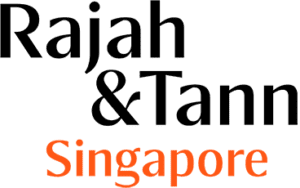The Guide to Getting Started with Anonymisation (“Guide“) was launched at the 63rd Asia Pacific Privacy Authorities (“APPA“) Forum on 11 June 2025. The Guide seeks to help organisations adopt anonymisation practices to safeguard personal data. It provides an overview of basic anonymisation concepts and outlines practical steps for organisations to get started on their anonymisation journey.
The Guide sets out a suggested anonymisation process as follows:
- Know your data;
- Remove direct identifiers;
- Apply anonymisation techniques;
- Assess risks; and
- Manage risks;
Other than the process described above, the Guide states that organisations can also refer to ISO/IEC 27559, which provides a useful framework and considerations for context assessment, data assessment, identifiability assessment and mitigation, and governance.
The Guide also contains the following:
- other recommended practices, such as periodic reviews and keeping of records;
- resources on anonymisation from ISO/IEC and individual jurisdictions; and
- hypothetical example to illustrate the steps described.
Click on the following links for more information:
- Press Release titled “Guide to Getting Started on Anonymisation Unveiled at 63rd APPA Forum” (available on the Personal Data Protection Commission website at pdpc.gov.sg)
- Guide to Getting Started with Anonymisation (available on the APPA website at appaforum.org)
Disclaimer
Rajah & Tann Asia is a network of member firms with local legal practices in Cambodia, Indonesia, Lao PDR, Malaysia, Myanmar, the Philippines, Singapore, Thailand and Vietnam. Our Asian network also includes our regional office in China as well as regional desks focused on Brunei, Japan and South Asia. Member firms are independently constituted and regulated in accordance with relevant local requirements.
The contents of this publication are owned by Rajah & Tann Asia together with each of its member firms and are subject to all relevant protection (including but not limited to copyright protection) under the laws of each of the countries where the member firm operates and, through international treaties, other countries. No part of this publication may be reproduced, licensed, sold, published, transmitted, modified, adapted, publicly displayed, broadcast (including storage in any medium by electronic means whether or not transiently for any purpose save as permitted herein) without the prior written permission of Rajah & Tann Asia or its respective member firms.
Please note also that whilst the information in this publication is correct to the best of our knowledge and belief at the time of writing, it is only intended to provide a general guide to the subject matter and should not be treated as legal advice or a substitute for specific professional advice for any particular course of action as such information may not suit your specific business and operational requirements. You should seek legal advice for your specific situation. In addition, the information in this publication does not create any relationship, whether legally binding or otherwise. Rajah & Tann Asia and its member firms do not accept, and fully disclaim, responsibility for any loss or damage which may result from accessing or relying on the information in this publication.











